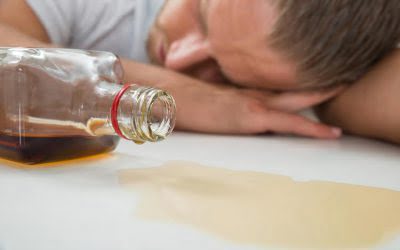Alcohol, on the other hand, often follows a slower, more insidious path of abuse before the body becomes dependent on it. And it is the most misused drug in the United States, Mr. Kump says. In other words, addiction can affect all areas of someone’s functioning. As your treatment continues, your doctor may recommend group meetings and continued what is alcoholism medical supervision to make sure that you have the support that you need to avoid relapsing. Another approach is motivational interviewing (MI), which focuses on enhancing motivation and commitment to change. MI helps individuals explore their ambivalence towards substance use and promotes self-motivation to pursue a substance-free lifestyle.
Encourage Professional Treatment
- The body becomes accustomed to the substance, and stopping or reducing its use leads to withdrawal symptoms.
- Change your life with Rehubs, creating the path for a healthier, happier and more fulfilling life.
- Psychological dependence can be just as harmful, leading to incapacitating cravings, obsessive thoughts and a belief that you rely on the substance to do certain things.
Yes, you can be physically dependent on a drug without being an addict. Physical dependence means your body has become accustomed to the presence of the drug and requires it to function normally. It does not include the compulsive behaviour and psychological cravings of addiction. Remember, seeking help is an important step towards recovery, and no one should face addiction or dependence alone.
People Also Ask
- Addressing substance use issues early allows individuals to gain control before their behavior spirals out of control.
- For alcohol addiction and opioid addiction, supervised detox may be necessary depending on the severity of physical dependence.
- Reach out to the Archstone Behavioral Health specialists now to learn more about our holistic addiction treatment programs.
- We offer a full continuum of care on our campus – from admissions to discharge, guiding and supporting you every step.
- Substance abuse and addiction lead to severe repercussions that impact physical health, mental well-being, and social relationships.
Consider seeking support from a therapist online or in your area to build a personalized treatment plan. The terms addiction and dependence are often used interchangeably to refer to the physical and mental health impacts of substance use that occur for some people. Understanding the differences can be a step toward reducing stigma and improving personal and public understanding of addiction and substance use.
Chronic Tolerance
However, they may still experience withdrawal symptoms if they stop taking it. Seeking professional medical help can ensure that a person receives the proper diagnoses and treatment. A doctor can examine a patient to determine if symptoms of dependency or withdrawal are present. A mental evaluation can also help determine the presence of an addiction. If you are concerned that you may have a drug dependency or drug addiction, it is crucial that you speak to a medical professional as soon as possible.
Emotionally, addiction can lead to mood swings, anxiety, depression, and feelings of hopelessness. Remember, the journey from dependence or addiction to recovery isn’t always a straight line. It’s more like a winding road with its fair share of bumps and detours.
- It’s a physical reliance on a substance, where the body has adapted to its presence and throws a tantrum (hello, withdrawal symptoms!) when deprived of it.
- Addiction, the « worst » of the three if you will, is a mental disease where the user is dependent on the substance and continues to use it despite its harmful effects on the individual or their family.
- For instance, someone who is on a prescription for pain medication may find that he needs increasing amounts of dosage for the medication to work.
- You may require larger quantities over time to achieve the effect you initially experienced; this phenomenon is known as tolerance.
Understanding the difference is essential to guide more effective drug dependence vs addiction intervention and healing. Speaking of prescriptions, let’s talk about the elephant in the room – the role of prescription medications in dependence and addiction. It’s a thorny issue, like trying to navigate a rosebush maze blindfolded. Many medications, particularly those for pain management or anxiety, can lead to physical dependence with long-term use. It’s when the use goes beyond medical necessity, when the person starts doctor-shopping or using the medication to cope with life stressors, that we enter drug addiction territory.
Cognitive Behavioral Therapy: A Pathway to Mental Clarity
Dependence is a common and natural outcome of using https://elmotmayzon.com/i-tested-it-the-ultimate-one-year-sobriety-gift/ certain drugs over time, but it is important to distinguish it from addiction. While nearly everyone who uses opioids for an extended period will develop physical dependence, only around 3% to 19% of patients will develop an addiction. Dependence reflects the body’s normal adjustment to the consistent presence of a drug, but users don’t engage in any changed thoughts or behaviors. Unlike addiction, dependence is primarily a biological response to the presence of a drug. Drug dependence happens when the body adapts to a drug, leading to withdrawal symptoms if use is reduced or stopped. This can occur even with prescription medications when taken over a long period.


This could mean taking medication that is prescribed to someone else, taking a larger dose than prescribed, or crushing and snorting the medication that is meant to be taken by mouth. Some over-the-counter medications can also be taken for the purpose of getting high. People who frequently use drugs are at significant risk of developing addiction to them. However, it’s not really having one or the other that is important here. When a person is in active addiction, that individual can have a strong tolerance and a physical dependence.